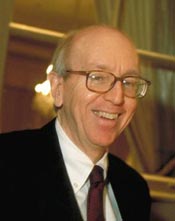Historically, The Book of Mormon has been attacked from every angle. Since the beginning, critics have sought to prove the book is not what Joseph and its witnesses claim it to be. The account of the Brother of Jared was heavily cited by the first anti-mormons in their attempt to debunk the sacred text. According to J.C. Bennett (one such attacker), the story of the Jaredites with their ships and shining stones was the book’s biggest mistake. Bennet said this story showed that Joseph “used his utmost endeavors to see how far he could impose on the gullibility of mankind. It [would] be useless to make any further comments to prove the absurdities of this extraordinary book.” (J. C. Bennett, History of the Saint, Boston: Leland & Whiting, 1842, p. 126; for several other references to the Jaredite story used as evidence of the Book of Mormon’s falsity, see Hugh W. Nibley, Approach to the Book of Mormon, p. 340). Extraordinary indeed!
Of course, Bennett and the others have since been proven sorely wrong because the story of the Jaredites and their journey now serves as one of the greatest evidences of the book’s veracity. The symbolism set forth in the story, together with recently discovered historical evidence, again show that Joseph in no way could have written the story himself–nor could the smartest man alive in his day.
First, take a brief look at the symbolism. As a general matter, the story of the Jaredites serves as a type of every person’s life. Thomas R. Valletta has written that “[t]he Book of Mormon chronicle of Jared and his brother is the story of us all in our quest for the eternal land of promise.” (Monte S. Nyman, Charles D. Tate, eds., Fourth Nephi through Moroni: From Zion to Destruction, p.303).
The Lord taught Moses that “all things are created and made to bear record of me, both things which are temporal, and things which are spiritual.” There are many ways in which things testify of Christ. Specifically, the Jaredite journey through the waters is clearly a symbol of baptism. Orson F. Whitney stated: “Paul discovered, by symbolical reasoning, or had it revealed to him more directly, that the children of Israel, ‘our fathers,’ were all baptized in passing through the Red Sea, on their way to Canaan (1 Cor. 1:2): an idea which suggests that the Brother of Jared and his colony may have been baptized in like manner, for they underwent a similar experience in passing through ocean deeps on the way to their promised land (Ether 6:6).” (Orson F. Whitney, Gospel Themes, p.59). Also, one could argue that the figure 8 takes on a symbolic meaning in the story. There were 8 barges. In the story of Noah, there were 8 people aboard the ark. In fact, Peter made special mention of this in reference to baptism. Said he: “once the longsuffering of God waited in the days of Noah, while the ark was a preparing, wherein few, that is, eight souls were saved by water. The like figure whereunto even baptism doth also now save us. . . .” (Emphasis added).
I think it’s is pretty clear that Peter was refering to the number 8, and not water. It’s clear because he uses the word figure and not simply “whereby” or similar wording like that. Even if not, it’s still curious he even uses the number 8. Either way, the number probably is significant; why else would Peter mention it? There are other symbols you will find as you read through the story.
Now for a brief look at the historical evidence. First, Hugh Nibley points to an interesting clue found in Ether 6:7: the barges were built after the manner of Noah’s ark. In particular, the aspect like unto Noah’s ark was that the barges were “tight like unto a dish”. The barges probably didn’t look a lot like what is depicted in the artwork at the foot of this blog. Or maybe they did, and the depictions of Noah’s ark are way off. This is what Nibley suggests. Or perhaps, the barges and the ark are a hybrid of both concepts? The Hebrew word for ark is tevah, which means “a closed receptacle”. An interesting depiction of what the barges may have looked like is below (larger image here):

The most interesting evidence surrounds ancient Jewish traditions which held that Noah had with him on the ark a zohar, i.e. a shiner or illuminator. This Jewish/Hebrew tradition is well established and recognized. (See, Midrash Rabbah, Trsl. H. Freedman (London: Soncino Press, 1939), I, 244; and Talmud Jerushalmi, Pesahim, I, 1, Schwab Trsl., Paris, 1882, cited by E. Mangenot, in F. Vigouroux, Dictionnaire de la Bible (Paris, 1894), I, 923).
Nibley cites some Rabbis who believe the zohar was a precious stone that gave actual physical light to the ark (much like the BoJ’s 16 stones); and he cites other Rabbis who believe the zohar was a transparent stone that provided Noah with a means of distinguishing night from day. Rabbi Akiba ben Kahmana describes the zohar as “a polished gem which [Noah] hung up: when it was dim he knew that it was day, and when it shone he knew it was night.” (Nibley, Approach to the Book of Mormon, p. 141). Furthermore, the Jerusalem Talmud expressly states that “Noah was able to distinguish day from night by certain precious stones he possessed, which became dim by day and shone forth by night.” (Id. at 142). However, the Jersalem Talmud was non-existent in the United States until 1860; and even after that, it is extremely rare that Hebrew scholars can even understand it.
So, did Joseph coincidentally make up a story about light-giving stones in tightly sealed boats that exactly matches the historical traditions and evidence for the ark of Noah? I don’t think so. Rather, Mahonri Moriancumer most likely got his idea to illuminate the barges from this ancient tradition stemming from the ark. Just as Ether 6:7 explains: “their vessels. . .were like unto the ark of Noah”.
Strange Ships and Shining Stones have brought forth that which will lead us to Christ, and have once again vindicated Brother Joseph!













